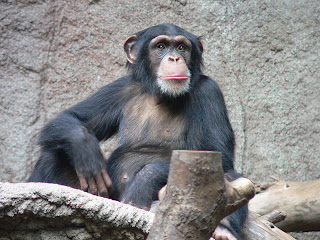Very few people in the United States give a damn about the Egyptian Jackal. While I have nothing to offer as proof of this, I stand by my hunch that this specific canid isn’t high on the list of most popular animals, because really, who has even heard of it before? (I hadn’t until today…)
 |
| Golden Jackal. Source: Wikimedia Commons. |
Why then should people care that genomic analysis has revealed that the Egyptian Jackal is actually a wolf, not a jackal at all? Well, because even if you don’t find the power of genomic analysis fascinating (like I do) this revision of current taxonomy (the classification of species based on how they are related to each other) is a great example of how science is a fluid thing that continually changes as new things are discovered. I think that understanding how even accepted scientific information can change is a hurdle that many people have to clear before they can really start to follow science in the news.
For years, the Egyptian Jackal (Canis aureus lupaster) was believed to be a subspecies of the Golden Jackal (both species that call parts of Africa home.) Researchers from the University of Oslo (Norway) noticed physiological differences (ie: differences in the way it looked) between Egyptian Jackals and other Golden Jackals, which led them to pursue a genetic analysis.
Sequencing the Egyptian Jackal’s genome has shown that it is a closer evolutionary relative to wolves found in India and the Himalayas (even to the United States’ Grey Wolf) than to Golden Jackals. Revising the taxonomy could have important impacts on conservation efforts. If Canis aureus lupaster (now renamed the African Wolf — and the only wolf now known to live in Africa) is a distinct species, an evaluation needs to be done to see how many members of this species there are, to determine if it is endangered.
I like this story because its a great example of how scientists are constantly revising accepted information the more they learn. However, I think when you tell people that science is constantly changing it is important to distinguish between making a revision and being flat out wrong. Scientists weren’t just wrong in their taxonomy. The Egyptian Jackal/African Wolf is a canid, so that part of the taxonomy was and still is correct. The genetic analysis enabled research to put the species into an even more specific category.
So when we say that science changes, we mean that it gets more specific and thus more accurate. But that doesn’t mean that the scientists who came before had everything all wrong. Often when scientists revise information their predecessors/colleagues were close, but didn’t have the necessary tools to learn enough to get things exactly right. There is always more that scientists can learn, and as they do, they fine tune, which is the case with the Jackal/Wolf taxonomy.
For more on the Jackal/Wolf revision, the research paper was published in PLoS One.
